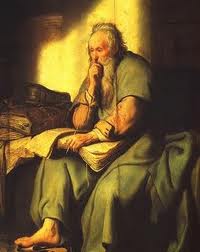Question
Gramps.
I realize that you would have to speculate on this question, but I value your opinion. If the Savior died for all the creations of Heavenly Father, and all the children that have, or ever will be born, after the resurrection, and each person has received some sort of glory, (or not) where do the rest of God’s children fit into the plan of salvation? I have to presume that Heavenly Father continues to have children even after this world is celestialized.
What is their state, are they tested as we were, are they assigned to a glory (or not), is Christ the Savior of all of his Father’s children regardless of the time they were born– even after the resurrection? Let me say this has absolutely no value at all to my salvation, or yours for that matter, I just have an inquiring mind.
John
Answer
Dear John,
There is the natural tendency to judge the things of eternity by the constraints of mortality. We are dealing here with the issue of the concept of time. In mortality we live in a one-dimensional time frame–the past, present and future. These concepts seems very natural, and indeed, universal, because we are not conscious of experience where there is not such a concept as time. Think of a fish. It’s obvious that a fish doesn’t know that it is wet, because it has never experienced anything else. It has no concept of what dryness is like. It’s somewhat the same with the concept of time–we have never experienced anything else. However, the concept of the one-dimensional time frame is restricted to our mortal experience. We learn in Alma 40:8 that time is measured only unto men-
Now whether there is more than one time appointed for men to rise it mattereth not; for all do not die at once, and this mattereth not; all is as one day with God, and time only is measured unto men.
Further, in D&C 88:110 we read,
The seventh angel shall sound his trump; and he shall stand forth upon the land and upon the sea, and swear in the name of him who sitteth upon the throne, that there shall be time no longer.
Attempting to explain what eternity is like, having no memory of experience in a realm where time does not exist, is rather like a fish trying to describe what it’s like being dry. However, with a little more intelligence than that of a fish, perhaps we can make an attempt. We learn from D&C 130:7, that the angels
But they reside in the presence of God, on a globe like a sea of glass and fire, where all things for their glory are manifest, past, present, and future, and are continually before the Lord.
If all things are continually present before the Lord, He looks across what we would call time in the same manner that we look across space. Further, we learn that His course is one eternal round (D&C 35:1).
So in the eternities there is no beginning and no end. In that realm the Savior was the first begotten of all the children of God. He qualified and volunteered to be the Savior of the world–indeed, the Savior of all our Father’s children regardless of the world on which they were or will be born. (See D&C 76:22-24; 88:45-61) So, throughout the eternities the great atoning sacrifice of the Savior, infinite in its scope (See Alma 34:10,14), will atone for all the sins of all our Father’s children, regardless of when they were born or for those still to be born.
Gramps







